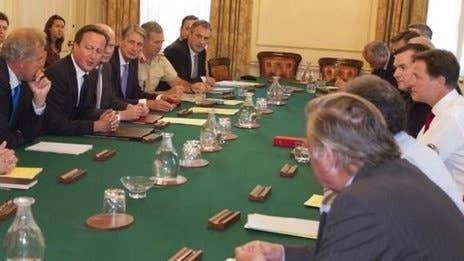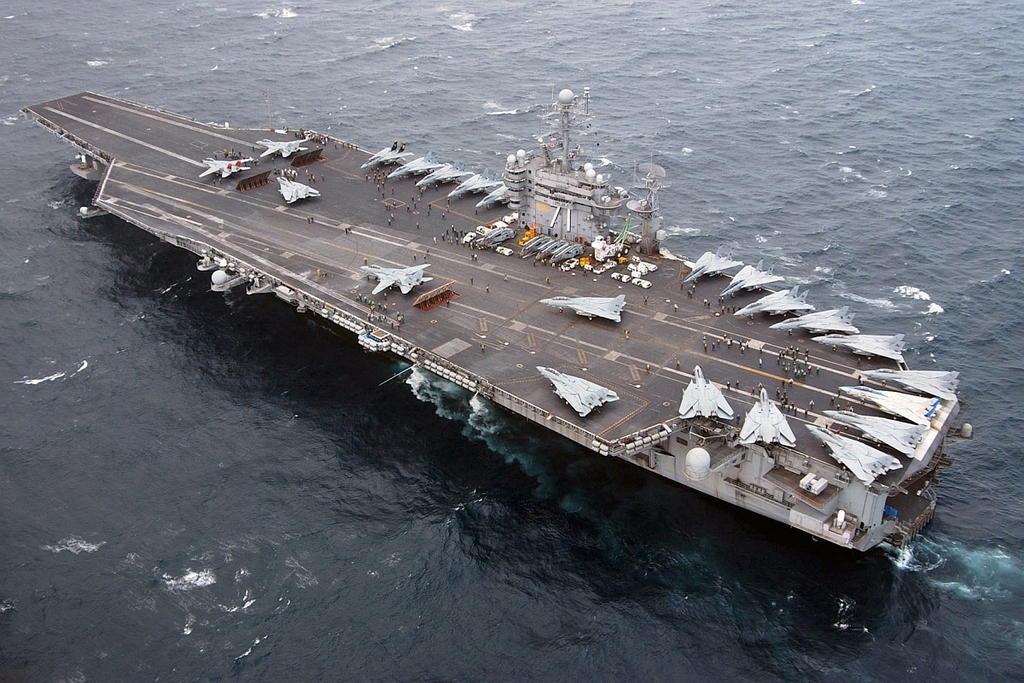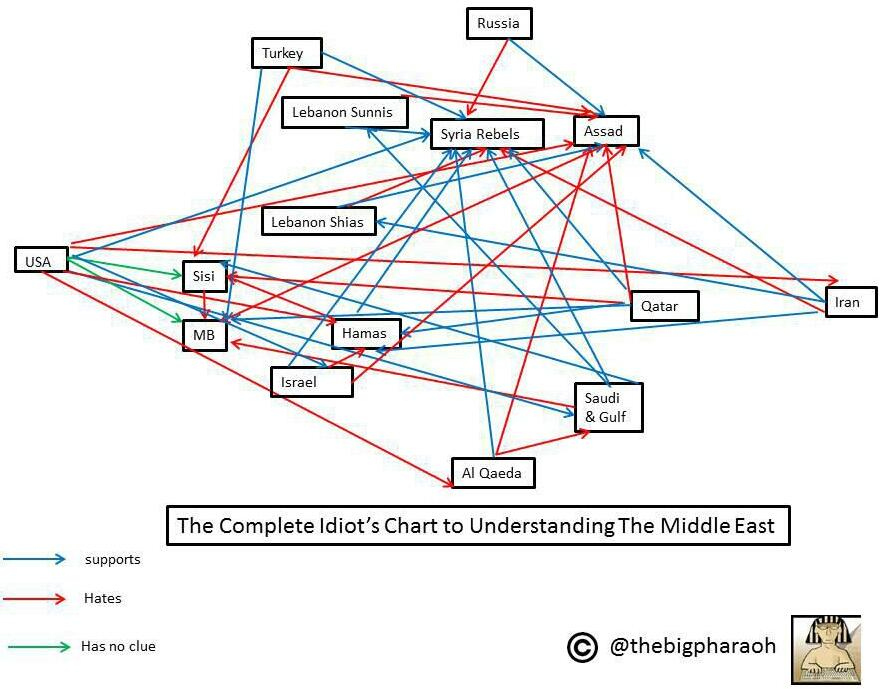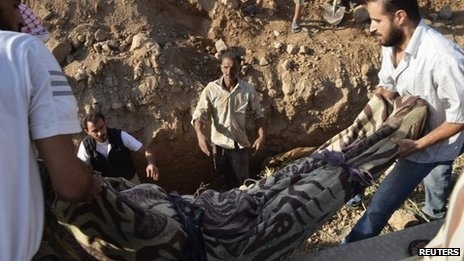1. Has Ed Miliband backed David Cameron into a corner, or is everyone just being sensible?

We thought today's debate would be based on a motion proposing the UK should take direct military action in Syria, ending with a straightforward yes/no vote. But when the actual motion was published on Wednesday evening, it became clear this wasn't the case. MPs will vote merely on whether to agree to come back and have a second vote after UN inspectors have finished investigating the alleged chemical attack.
The historical irony weighs so heavy it'll be a wonder if the debating chamber doesn't collapse. A decade on from Iraq, a British prime minister finds himself under pressure thanks to the desire of an American president for swift military action. But this time, the Labour party that went to ill-fated war 10 years ago says it will only support the prime minister if the UN can first consider a report from weapons inspectors currently investigating the alleged attack.
It's unlikely to have been the only factor in the U-turn: David Cameron's decision to have two votes instead of one might well have been influenced by the degree of unease among his own party over launching a military strike on Syria.
For Labour's part, Ed Miliband is perhaps hoping to turn this issue into one that becomes an ongoing problem for the prime minister, in turn benefiting his own standing after a rocky summer. It seems he made his decision on the vote rather late. You'd hope, however, he isn't playing politics. According to a Government source in today's Times, No 10 & the Foreign Office think Miliband is "a f****** c*** & a copper-bottomed s***." We've figured out "failing cook" but are struggling with the rest.
2. How many people agree with this man?

The public is at odds with the party leaders. The latest YouGov poll shows opposition to military strikes running at two to one. Indeed, there's widespread opposition to do anything at all.
But all three of Cameron, Clegg and Miliband agree that the use of chemical weapons can't be ignored, and that limited military action could be justified in order to stop it, as long as it's legal and won't further exacerbate the problem.
And there's another little irony: Clegg and Miliband are offering these views despite the fact they were opposed to the Iraq war. However, the public appears to remain deeply affected by what happened a decade ago.
And this may be being fuelled by the warnings of senior figures in all parties - this afternoon Diane Abbott was protesting outside Downing Street - as well as former military men who are questioning whether a limited intervention is actually possible.
3. What are we hoping to get out of an attack?

The answer to this one should be pretty simple. Military intervention would be legal if it was carried out in order to prevent a humanitarian crisis: i.e. stop further chemical attacks happening. It must not be used for any other reason without a UN resolution. A resolution which won't happen anyway. But let's assume we know Assad carried out the attack. Given the circumstances, it's a crazy thing to do, and this makes you wonder if he wouldn't be minded to carry on the same path.
And then what? Could the British and Americans really get enough public support for boots on the ground of yet another Middle Eastern country? And if they did, how would China and Russia respond? In fact, they're not even the first countries to worry about. Consider, for a moment, the situation in the Middle East.

It's a little complicated.
Let's run one possible sequence. We put boots on the Syrian ground. In response Russia orders a massive military strike against Saudi Arabia (yeah, that little threat crept under the mainstream media's radar, didn't it?) over that country's support for Chechen rebels in Syria. In response, a threatened Israel fires its missiles into Iran. Russia's possible hold on the EU natural gas market is broken because it won't be able to establish a pipeline in Syria.
What does that mean for you? Well, your energy is cheaper: (Qatar feels secure enough to run a line from the Gulf to Turkey) but on the down side World War Three has just broken out between the US and Russia so you're using it to power the nuclear bunker in your back garden. To cap it all, China invades Europe while both countries are destroying each other so when you eventually surface you have to learn Mandarin. You might say this is fanciful, and you could possibly be right. The point is, there are an awful lot of vested interests here and we can't predict how they'll respond to a change in the status quo.
4. What if the US is wrong about the chemical attack?

To listen to some hawks, you'd assume the UN inspectors had finished their work and found unimpeachable evidence of a chemical attack. Which perhaps reminds you of something (that sound you can hear is Robin Cook spinning at 1800 RPM in his grave). To quote James Revill in the Guardian:
There is little doubt that something horrific has happened. However, we do not have a credible "chain of custody" from sampling to analysis (as could be provided by UN inspectors working with the WHO and OPCW), and it is difficult to determine the exact nature of the agent or agents used or what exactly transpired.Adding to the complexity, acquiring such information is not easy. As Meselson has stated, "obtaining reliable chemical analyses is not nearly as simple as non-specialists might think" (pdf). Yet without either "some kind of smoking gun" or details on the circumstances of the chemicals' release, the truth about what happened is highly uncertain.
And you have to ask why Assad would launch a chemical attack so soon after the arrival of UN weapons inspectors, close to where they're operating - at a time when he appears to be winning. Carla Del Ponte of the UNHCR has raised the possibility that if they were used, they may not even have been used by Assad. As Revill puts it:
The history of allegations of chemical weapons' use is largely the history of misinformation and disinformation. This makes it much more difficult to work out what has happened in a legitimate and transparent way.
5. Whatever happened to arming the rebels?

Barack Obama promised on 13 June to provide "direct military support" to the Syrian Supreme Military Council after evidence that Assad had used chemical weapons in the spring.
John Kerry, Secretary of State, repeated the President's pledge. There were reports that President Obama's declaration encouraged other countries to supply weapons to the rebels; and that the latest use of chemical weapons encouraged further shipments.
But it doesn't appear the US sent any weapons. Does this mean that the US has changed its mind, or that it hasn't got round to it yet and felt that the further use of chemical weapons required it to raise its response to the next level? Or is it that going to war is actually safer than supporting the rebels? And this leads us to...
6. Are we straight up missing the point to all this?

Bomb Assad, and you're essentially bombing on behalf of Al Qaeda - among others. Don't think the US hasn't realised that. Israel has bombed twice on sites it believes housed missiles threatening its territory. It did nothing to change the war. It wasn't intended to either.
And Israel is crucial to all this. Germany's Focus magazine reports it was the Israeli Defence Force (IDF) that relayed the incriminating information resulting from the chemical attack. To quote Channel Four's Alex Thompson:
Here "punitive" gets mission-critical. If there truly were a blitz and the very existence of the Assad regime was under direct threat (which it is not nor has been in over two years of war), a major response against Israel gets more likely by Damascus.Selective don't-ever-do-this-again cruise missiles make that scenario far less likely and vitally – mean Russia and Iran confine themselves to noise, bluster, increased arms shipments – but little more.
Thompson tells us the IDF is providing nearly all the intelligence available to the British and US agencies. In return Israel will get prior warning of what will be hit symbolically, when and how.
This isn't about shock and awe. It's an Israeli-lead attempt to punish Assad and safeguard home interests. He might well be right.

